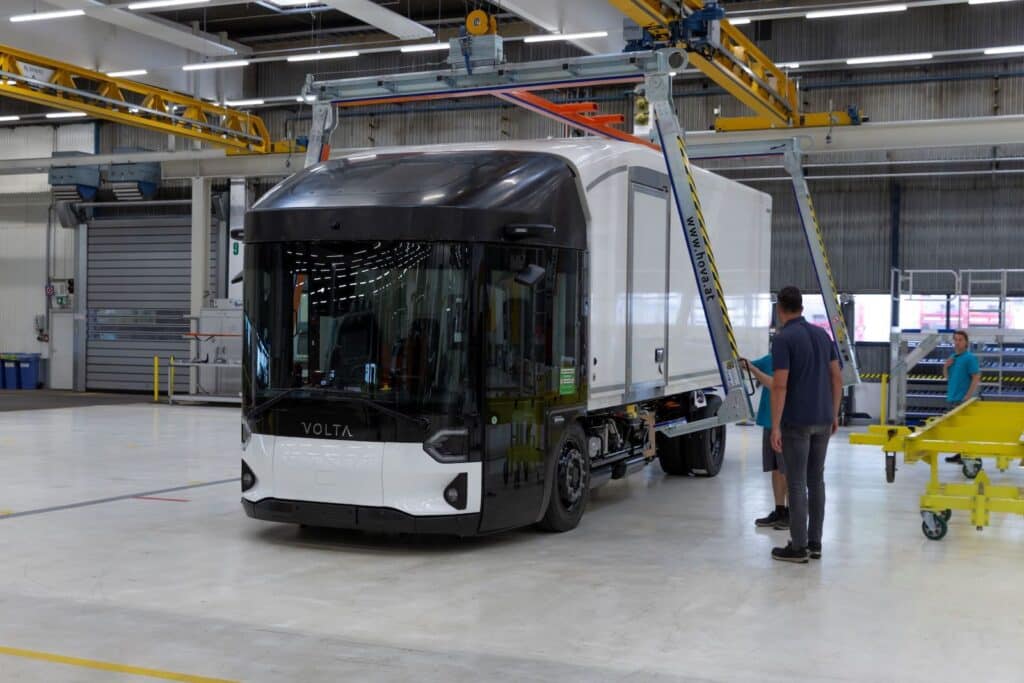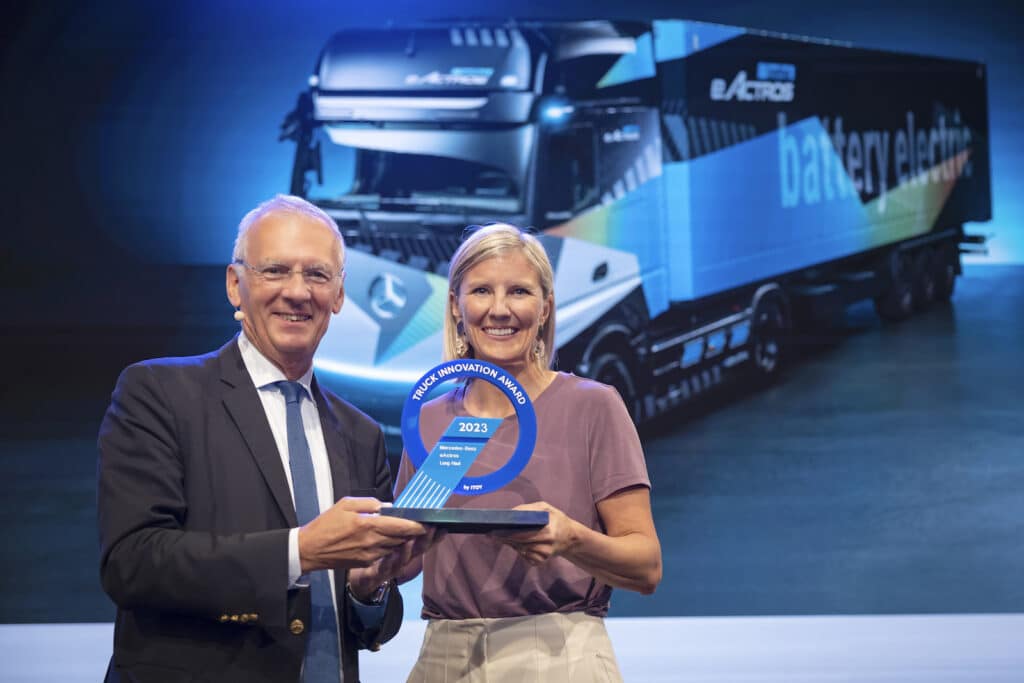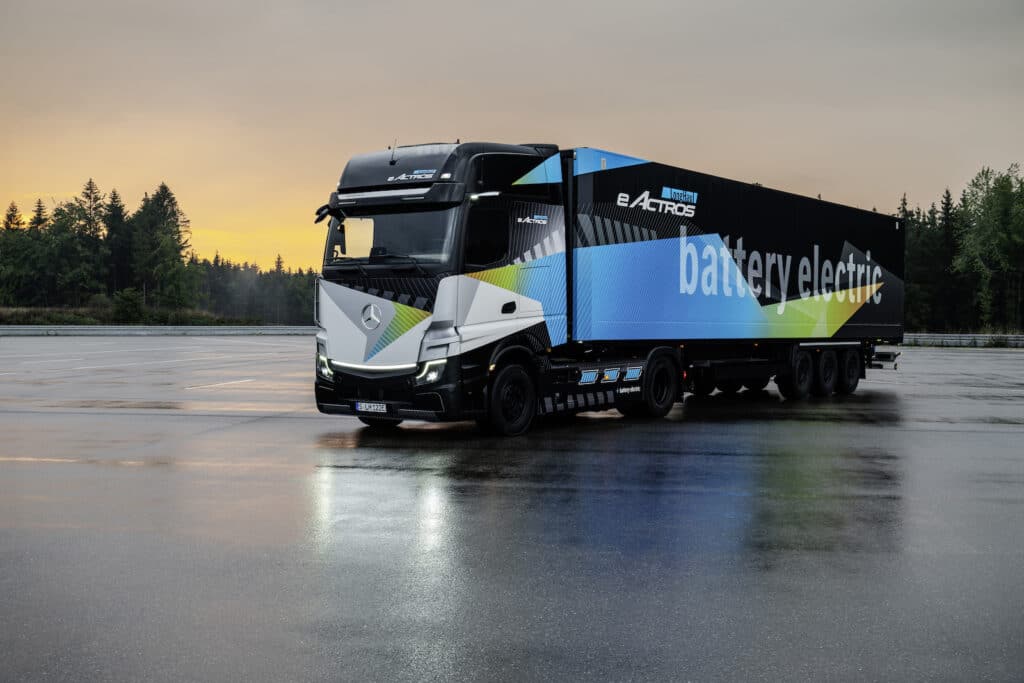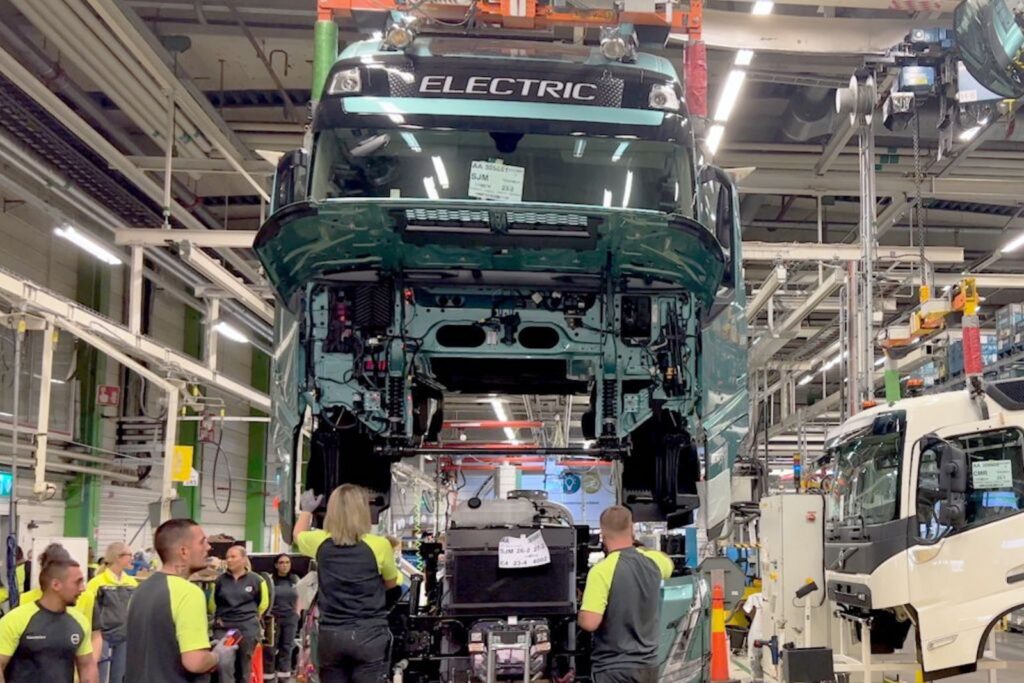The race to put electric trucks on the road is intensifying as manufacturers push ahead, with the spotlight on new vehicles from Volta, Volvo Trucks and Mercedes-Benz.

Volta Trucks, a startup company intent on building fully electric commercial vehicles, this week saw the start of production of second-generation prototypes, which will form part of a Pilot Fleet of trucks for loans to customers for extended periods in late 2022 and early 2023.
The tests of the Volta truck will give fleet operators knowledge of how the purpose-built full-electric medium duty commercial vehicle will integrate into their operations. The start of series production of customer specification vehicles is on track to start in early 2023.
Battery electric heavy trucks gain traction
Volta Trucks’ contract manufacturing facility is run by Steyr Automotive, formerly MAN Truck and Bus Austria.
Volta co-founder Kjell Walöen said having this first vehicle rolling off the line in Steyr is the latest significant milestone on the company’s journey toward the start of production-ready vehicles for customers.

“To have achieved this significant landmark in just 12 months is a testament to the pace that we are working at to deliver the safest and most sustainable trucks to urban streets, and the excellent collaboration we have with our partners at Steyr Automotive,” Walöen said.
“We are working at to deliver the safest and most sustainable trucks to urban streets,” he added.
Volvo Trucks is launching series production of electric versions of heavy-duty trucks including Volvo FH, Volvo FM and Volvo FMX, which represent about two-thirds of the company’s sales.
Series production of Volvo’s heaviest electric trucks will start in the Tuve factory in Gothenburg, Sweden, and next year the factory in Ghent, Belgium will follow. Volvo produces the electric trucks on the same line as its conventional trucks, providing production flexibility and efficiency gains. The batteries are supplied by Volvo Trucks’ new battery assembly plant in Ghent.

Leading the way
Meanwhile, the Mercedes-Benz eActros LongHaul was awarded “2023 Truck Innovation Award” by the International Truck of the Year jury, which is made up of 25 experienced commercial vehicle journalists from important international media from Europe and other countries the IAA Transportation 2022 in Hannover.
The heavy battery-electric eActros LongHaul for long-distance transport is Mercedes-Benz Trucks’ trade show highlight and was unveiled as a concept prototype at a press conference in the run up to the IAA.
The e-truck has a range of about 300 miles on a single battery charge and is capable of high-performance charging. Readiness for series production is planned for 2024.
Carries under pressure to clean up trucks

The carriers using heavy trucks in their business are coming under increasing pressure to clean up emissions from their vehicles, particularly in crowded urban areas where local governments are pushing for use of cleaner vehicles.
Truck emissions, particularly the emissions from diesel trucks, have been linked to sickness and deaths in urban areas.
The California Air Resources Board launched an ambitious effort to curb emissions from trucks moving freight in and out of the Port of Los Angeles by deploying battery-electric trucks and trucks powered by fuel cells.
Fuel cells, which use hydrogen, are considered by some observers better suited to carrying freight over long distances because they do not need heavy batteries.
CEO Elon Musk, who is planning to launch Tesla’s battery-powered heavy-duty, commercial truck, has derided fuel cells as impractical. But Toyota has built 10 fuel-cell trucks now being used for hauling freight around the port.







